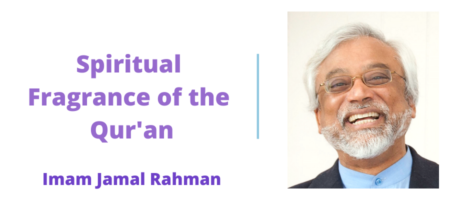“Are you not aware that it is God whose limitless glory all creatures in the heavens and on earth praise, even the birds as they outspread their wings?” (Qur’an 24:41-42)
“To God belong the most Beautiful Names.” (Qur’an 7:180)
We tend to think that only human beings can praise God, maybe because we think of praise as being expressed in words. Praise and gratitude are often expressed in words, but that is certainly not the only, nor even the most powerful way, they can be expressed. When we look at God’s creation all around us, we see beauty, symmetry, artistry and originality everywhere we turn. Whether it is a beautiful and aromatic flower, the perfectly formed shape of a snail’s shell, a majestic cedar tree, or a graceful bird on the wing, it is easy to imagine that the mere manifestation of such beauty and majesty is praising the Creator. With the exception of human beings, God’s creatures do not question their existence or complain about their conditions. They struggle to survive, but do not blame others for their struggles. They live their life to the fullest with complete attention to the task at hand, and thus they fulfill God’s purpose for them on earth at every moment. This can be described as praising and thanking God and expressing God’s limitless glory. One might wonder why this is so hard for human beings?
Because human beings were given free will, we have a tendency to think that we are the arbiters of our own destiny, responsible for our successes, failures, and circumstances in life. Thus, when circumstances are good and life is going well, we take credit for ourselves and our own efforts. But when things go awry, circumstances change, and we experience difficult conditions, we blame and curse whoever we think is responsible. This is, indeed, the mystery of free will and the condition of humankind. We are, in fact, responsible for the direction we take in our lives (after a certain age), and for the decisions we make along life’s journey. We are also responsible for the attitude we take towards life and towards our relationships with God’s creation. We are responsible for our own mental, personal and spiritual development and the relationship we choose to have with a power greater than ourselves.
However, we are not responsible for where, when, and how we have been placed in this world. We are not responsible for all of the challenges we face. We would be wise to take a lesson from God’s non-human creatures who do not question or complain, but simply live out their destiny. Since we were given free will, we must learn to direct it in a way that benefits ourselves and others, and glorifies our Creator and the rest of God’s creation. In Islam, God’s Names represent all the diverse, beautiful and majestic qualities of God. We, too, have access to those qualities and we can nourish them in our own beings, since God’s spirit was breathed into us at birth. When circumstances of life are challenging or difficult, we would do well to call forth in ourselves the qualities of divinity which can help us navigate those circumstances, such as courage, faith, strength, mercy, and generosity. Thus, we also have the ability to manifest our highest purpose and live into the fullness of our Divinity. For this we can and should be deeply grateful!


